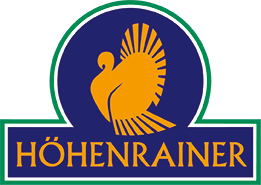Leave of Absence Policy Best Practices for HR Checklist
A standardized template outlining best practices for HR departments to effectively manage employee leave of absence policies.
I. Policy Statement
FAQ
How can I integrate this Checklist into my business?
You have 2 options:
1. Download the Checklist as PDF for Free and share it with your team for completion.
2. Use the Checklist directly within the Mobile2b Platform to optimize your business processes.
How many ready-to-use Checklist do you offer?
We have a collection of over 5,000 ready-to-use fully customizable Checklists, available with a single click.
What is the cost of using this Checklist on your platform?
Pricing is based on how often you use the Checklist each month.
For detailed information, please visit our pricing page.
What is Leave of Absence Policy Best Practices for HR Checklist?
Here are some best practices for a Leave of Absence (LOA) policy checklist:
- Clear Eligibility Criteria: Define who is eligible for LOA, including employees with family and medical needs, military leave, jury duty, and other approved reasons.
- Notice Period: Specify the minimum notice period required for an employee to request a LOA, and any exceptions that may apply.
- LOA Application Process: Outline the steps an employee must take to request a LOA, including submission of necessary documentation and approval process.
- Approval Authority: Define who has the authority to approve or deny LOA requests, and under what circumstances.
- Leave Types: Identify different types of LOAs, such as family medical leave (FMLA), disability leave, bereavement leave, etc.
- Pay and Benefits During Leave: Specify whether employees will receive pay and benefits during their LOA, and if so, for how long.
- Return to Work Requirements: Outline the steps an employee must take to return to work after a LOA, including any necessary documentation or clearance procedures.
- Employee Responsibilities: Clearly communicate employee responsibilities while on LOA, such as maintaining health insurance coverage.
- Manager Responsibilities: Define manager responsibilities when dealing with employee requests for LOA, including notification of other team members and department heads.
- Record Keeping: Specify how LOA information will be documented, including who is responsible for tracking leave time and maintaining records.
- Communication: Establish procedures for communicating LOA information to employees, managers, and HR personnel.
- Compliance: Ensure the LOA policy complies with relevant laws and regulations, such as FMLA and ADA.
- Employee Confidentiality: Protect employee confidentiality when dealing with sensitive medical or personal leave requests.
- Manager Training: Provide manager training on LOA policies, procedures, and best practices to ensure consistent application.
- Policy Review and Revision: Regularly review and revise the LOA policy as needed to reflect changing business needs and regulatory requirements.
How can implementing a Leave of Absence Policy Best Practices for HR Checklist benefit my organization?
A well-structured Leave of Absence (LOA) Policy helps organizations manage employee absences effectively. Implementing our LOA Policy Best Practices for HR Checklist can:
Reduce administrative burdens and costs associated with managing employee leave Ensure compliance with relevant employment laws and regulations Enhance employee morale and trust through clear, consistent policies and procedures Improve communication between employees, managers, and HR on leave-related matters Streamline the return-to-work process to help employees get back to productivity faster Support business continuity by minimizing disruptions caused by absences
What are the key components of the Leave of Absence Policy Best Practices for HR Checklist?
- Employee Eligibility and Qualification
- Types of Leaves and Timeframes
- Notification and Approval Procedures
- Leave Application Forms and Process
- Managerial Responsibilities and Expectations
- Return-to-Work Planning and Support
- Payroll and Benefits Implications
- Confidentiality, Data Protection, and Record Keeping
- Training and Communication for Managers and Employees
II. Eligibility Criteria
III. Types of Leaves
IV. Request and Approval Process
V. Notice and Reporting Requirements
VI. Leave Without Pay
VII. Return to Work
VIII. Termination of Employment
IX. Confidentiality and Non-Disclosure Agreements
X. Policy Review and Revision
XI. Approval
Expense Reduction
 34%
34% Development Speed
 87%
87% Team Productivity
 48%
48% Generate your Checklist with the help of AI
Type the name of the Checklist you need and leave the rest to us.
 Made in Germany
Made in Germany Fair Pricing Policy
Fair Pricing Policy



























 Certified Security and Data Protection
Certified Security and Data Protection Active Support and Customer success
Active Support and Customer success Flexible and Fully customizable
Flexible and Fully customizable